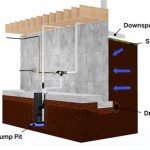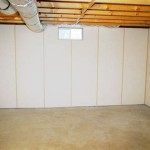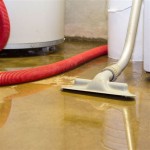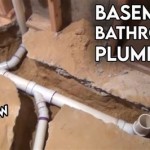Why Does Water Come Into My Basement When It Rains?
A wet basement can be a source of frustration and worry for homeowners. The presence of water in your basement can lead to mold growth, damage to belongings, and even structural issues. Often, the culprit behind basement flooding is heavy rainfall. Understanding why water enters your basement during rain is crucial for taking proactive measures to prevent future occurrences.
1. Inadequate Drainage Systems
One of the most common reasons for basement flooding during rain is inadequate drainage systems. This can manifest in several ways:
- Downspouts and Gutters: If your downspouts are not directed away from the foundation, water can pool near the walls and seep into the basement. Similarly, clogged gutters can overflow, leading to water buildup around the house.
- Poor Grading: The slope of the ground surrounding your house plays a vital role in diverting water away from the foundation. If the ground slopes towards the house, water will flow directly towards the basement walls.
- Clogged Drainage System: Your home's drainage system, which includes sump pumps and French drains, is responsible for removing excess water from the basement. If these systems are clogged or malfunctioning, they will not be able to effectively handle heavy rainfall.
To prevent flooding due to inadequate drainage, it's essential to have a well-maintained system. Regular gutter cleaning, downspout extension, and grading adjustments can significantly reduce the risk of water entering your basement.
2. Foundation Cracks and Leaks
Cracks and leaks in the foundation of your home can provide pathways for water to seep into the basement. Foundation cracks can develop over time due to soil movement, settling, or even tree roots.
When heavy rain falls, the pressure on the foundation increases, potentially exacerbating existing cracks or causing new ones. Moreover, if the basement walls are not properly sealed, water can easily penetrate through even small cracks.
Identifying and repairing foundation cracks is essential for preventing water intrusion. In some cases, simple repairs like patching the cracks with sealant can suffice. However, for more extensive damage, professional foundation repair may be necessary.
3. Hydrostatic Pressure
Hydrostatic pressure occurs when water from the surrounding soil exerts pressure against the basement walls. During heavy rainfall, the ground becomes saturated with water, increasing the pressure against your foundation. If the foundation is not strong enough to withstand this pressure, water can infiltrate the basement.
Several factors can contribute to hydrostatic pressure, including:
- Poor Soil Conditions: Clay soils tend to retain more water than sandy soils, making them more susceptible to hydrostatic pressure.
- Lack of Waterproofing: Waterproofing measures, such as a properly installed foundation membrane, can help resist hydrostatic pressure.
- Ground Water Level: High groundwater levels can significantly increase the pressure against the foundation.
Managing hydrostatic pressure requires a multifaceted approach. In some cases, improving drainage around the foundation can reduce the pressure. However, addressing the issue may also involve professional waterproofing solutions, such as installing a French drain system or applying a waterproof coating to the foundation walls.
4. Improperly Sealed Windows and Doors
While less common than foundation issues, poorly sealed windows and doors can also allow water to enter the basement during rain. This is particularly true for basement windows that are below ground level. If the window frames are not sealed properly, rain can drive in through gaps and cracks.
To prevent water intrusion through windows and doors, ensure they are properly sealed. You should look for signs of leaks, such as water stains or mold growth, and address them promptly. You can also consider installing weather stripping or sealants to improve the seal of windows and doors.
In addition to the above, some other factors can contribute to basement flooding during rain, such as:
- Blocked vents: Insufficient ventilation can lead to moisture buildup, which increases the chances of water intrusion.
- Landscaping issues: Overgrown trees or shrubs near the foundation can block water flow and create water pooling around the house.
- Age of the home: Older homes may have foundation issues or outdated drainage systems, making them more prone to basement flooding.
It's important to note that solutions should be tailored to the specific causes of the flooding. It's always recommended to consult a professional to diagnose the issue and recommend the most appropriate course of action.

Why Your Basement Leaks In Heavy Rain

7 Potential Causes Of Water In Your Basement Newcomb And Company

Why Your Basement Leaks In Heavy Rain

Help My Basement Leaks When It Rains News And Events For Systems Inc

How To Fix Water Leaking Into Basement After Heavy Rain Gj Macrae

Why Is Water Leaking Into My Basement After Heavy Rain

Water Leaking Into Basement After Heavy Rain How To Stop It

9 Wintertime Reasons Your Basement Leak In Gaithersburg Md

What To Do If Basement Floods Every Time It Rains Expert Advice

Sewer Backup Basement Drain Flood Causes Cyclone Valves
Related Posts







